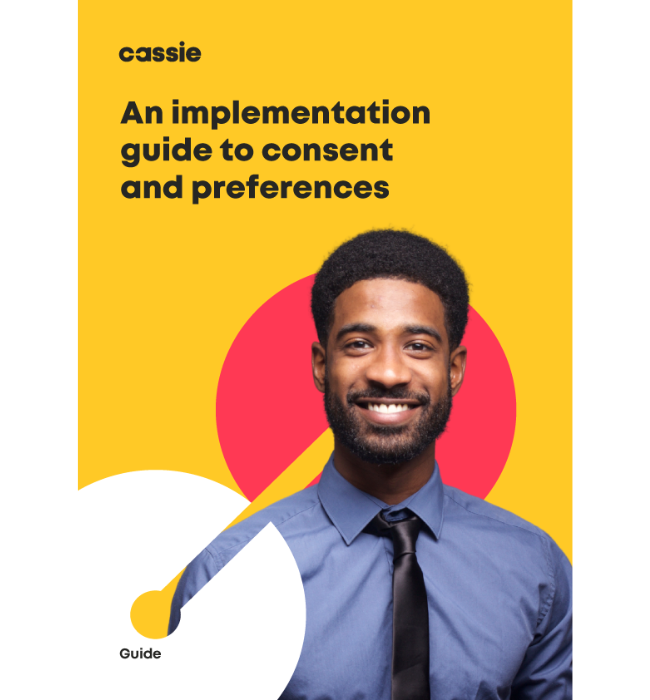5 experts on how to hit the ground running with consent into 2025
Posted: November 19, 2024
As the end of the year draws near, inevitably organizations need to prepare for the year ahead.
Whether that’s learning from the past 12 months or looking at potential opportunities or threats coming up, we all know how important it is to effectively strategize to get better results.
When it comes to the world of data privacy and consent management, it’s constantly changing. Businesses need to reflect on what they’ve achieved this year but now is the time to focus on how to improve.
So, what do industry leaders see as the most important things to consider?
In our recent panel discussion at the MarTech Summit, Consent Monetization: The Key to ROI and First-Party Data Innovation, industry leaders highlighted what they consider to be particularly important factors in order to hit the ground running into 2025.
Transparency and customer value
Hazem El Taha, Global Head of Marketing Technology, HSBC
Hazem emphasized the importance of having the right setup with customers to ensure transparency. He highlighted that a successful consent monetization strategy begins with a clear and transparent approach towards customers. This involves:
- Customer-centric strategy: Ensuring that the strategy aligns with customer needs and priorities.
- Value proposition: Clearly communicating the value that customers will receive in exchange for their consent.
- Use cases and prioritization: Identifying and prioritizing customer use cases to tailor the consent strategy effectively.
Building trust through transparency is crucial for long-term success and customer loyalty.
Strategic roadmap and audience identification
Douglas Sheard, Consumer Engagement Lead, Reckitt
Douglas outlined the necessity of having a well-defined roadmap for 2025, emphasizing that organizations should already have this in place. Key points from his discussion include:
- Audience identification: Clearly identifying the target audience is essential before starting any first-party data activities. Understanding the audience’s needs and interests helps in crafting a value proposition that resonates with them.
- Data collection and utilization: Developing a strategy for collecting and using data to add value for the user. Without providing value, the data collected is essentially worthless.
- Technology infrastructure: Ensuring the right platforms are in place to collect, store, and manage data effectively. This includes having a robust Consumer Data Platform (CDP) to segment and utilize data efficiently.
Douglas highlighted that a clear aim and the right technological infrastructure are foundational to successful consent monetization.
Internal advocacy and buy-in
Jennifer Allen, Senior Product Manager, MarTech, CV-Library
Jennifer brought a product management perspective, emphasizing that consent should not be treated as a mere compliance checkbox. Her key points include:
- Internal Excitement: It is crucial to get the entire company excited about consent management. Without enthusiasm and understanding across departments, efforts can feel like an uphill battle.
- Cross-Departmental Collaboration: Ensuring that all departments understand the importance of consent and how it impacts the business. This involves clear communication and education about the benefits and implications of proper consent management.
Jennifer stressed that building internal excitement and buy-in is essential for the successful implementation of consent strategies.
Addressing common organizational challenges
Tom Parsley, Principal, Credera
Tom, representing a consulting agency, discussed common challenges organizations face when integrating data from various sources, especially after acquisitions. His insights include:
- Data integration: The need to bring together data from different areas to improve personalization and insights.
- MarTech architecture: Plotting out the MarTech architecture to identify and address gaps. This involves assessing the current state and planning for future needs.
- Gap analysis: Conducting a thorough gap analysis to understand where improvements are needed and how to achieve them.
Tom highlighted that addressing these common challenges is crucial for leveraging data effectively and enhancing personalization efforts.
Budget and messaging
Nicky Watson, Founder and Chief Architect, Cassie
Nicky emphasized the importance of securing a budget and getting the messaging right. Her key points include:
- Securing budget: Consent monetization efforts cannot proceed without a proper budget. It is essential to justify the need for investment by demonstrating the potential return on investment.
- Building numbers: Once the messaging is clear and the budget is secured, it is possible to build out the necessary infrastructure and processes.
- Effective messaging: Marketing teams need to craft compelling messages to explain the importance of consent management to the rest of the business. This involves highlighting the benefits and potential impacts on the business.
Nicky underscored that without a budget and clear messaging, consent monetization efforts are likely to stall.
Final thoughts and key takeaways
Key takeaways include the importance of transparency, strategic planning, internal buy-in, addressing common data challenges, and securing the necessary budget. By focusing on these areas, organizations can hit the ground running and leverage consent to drive value and enhance customer relationships.

An implementation guide to consent and preferences
Balancing detailed notices, customization, and varying jurisdictional requirements is challenging, but privacy compliance, customer experience, and data flexibility can coexist with a well-planned strategy.
Use this document to help implement a Consent and Preference Management Platform (CPM) effectively by designing a comprehensive management framework.

